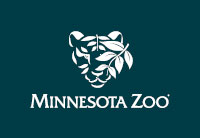 The pygmy three-toed sloth (Bradypus pygmaeus)is the most endangered of all members of the placental mammal superorder Xenarthra, which contains sloths, armadillos, and anteaters. It was only recognized as a distinct species in 2001, and is only found on Panama’s tiny Isla Escudo de Veraguas. This island is protected as a wildlife refuge and is contained within the Comarca Indigenous Reserve, but law enforcement is currently inadequate and needs to be improved. Although the island is uninhabited, fishermen, lobster divers and local people are all seasonal visitors; a growing number of fishermen and their families are temporarily living in the island, cutting mangrove trees (the sloth´s habitat and source of food) to make charcoal and opportunistically hunting sloths. This project proposal seeks to undertake urgent assessment and protection actions to save pygmy three-toed slothsfrom certain extinction. In collaboration with Panama´s Fundación Conservación, Naturaleza y Vida and the Zoological Society of London (ZSL), this project seeks to 1) support the authorities in their attempts to enforce legal regulations to stop the killing of sloths and the cutting of red mangroves, 2) conduct the first quantitative census and genetic survey of pygmy sloths to know their actual numbers, distributions and a behavioral ecology study to ascertain the pygmy´s habitat use, and 3) disseminate information on the pygmy sloth and its condition in order to increase local awareness and public support for conservation.
The pygmy three-toed sloth (Bradypus pygmaeus)is the most endangered of all members of the placental mammal superorder Xenarthra, which contains sloths, armadillos, and anteaters. It was only recognized as a distinct species in 2001, and is only found on Panama’s tiny Isla Escudo de Veraguas. This island is protected as a wildlife refuge and is contained within the Comarca Indigenous Reserve, but law enforcement is currently inadequate and needs to be improved. Although the island is uninhabited, fishermen, lobster divers and local people are all seasonal visitors; a growing number of fishermen and their families are temporarily living in the island, cutting mangrove trees (the sloth´s habitat and source of food) to make charcoal and opportunistically hunting sloths. This project proposal seeks to undertake urgent assessment and protection actions to save pygmy three-toed slothsfrom certain extinction. In collaboration with Panama´s Fundación Conservación, Naturaleza y Vida and the Zoological Society of London (ZSL), this project seeks to 1) support the authorities in their attempts to enforce legal regulations to stop the killing of sloths and the cutting of red mangroves, 2) conduct the first quantitative census and genetic survey of pygmy sloths to know their actual numbers, distributions and a behavioral ecology study to ascertain the pygmy´s habitat use, and 3) disseminate information on the pygmy sloth and its condition in order to increase local awareness and public support for conservation.
Ulysses S. Seal Conservation grant funds allowed the Minnesota Zoo’s Melanie Sorensen Education Program Coordinator for Teens and Adults to travel to Panama to i nterview locals about their experiences on the island to parallel this information with the ZSL researcher’s biological survey of the island. Melanie also was invited to speak in multiple coastal community schools to get the students excited about this ongoing sloth project. Melanie held a teacher workshop with the English teachers at the schools to develop and give resources on ways they can continue the education throughout the year on this biologically diverse island. Melanie’s trip was also began the relationship with community leaders that will continue the education and discussions about sustainable uses of the island resources by all communities.
nterview locals about their experiences on the island to parallel this information with the ZSL researcher’s biological survey of the island. Melanie also was invited to speak in multiple coastal community schools to get the students excited about this ongoing sloth project. Melanie held a teacher workshop with the English teachers at the schools to develop and give resources on ways they can continue the education throughout the year on this biologically diverse island. Melanie’s trip was also began the relationship with community leaders that will continue the education and discussions about sustainable uses of the island resources by all communities.


